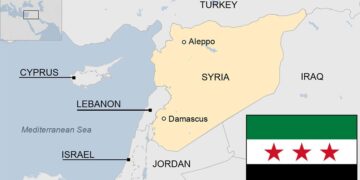A Path to Peace: The Role of UN Membership for Palestine in Resolving Middle East Tensions
Introduction: A Call for Inclusion
The ongoing strife in the Middle East has persisted for decades, manifesting primarily in the Israeli-Palestinian conflict. Amidst this turmoil, there exists a significant avenue towards reconciliation and lasting peace—the recognition of Palestine as a full member state within the United Nations. This article explores how such an acknowledgment could significantly contribute to alleviating regional tensions and fostering dialogue.
Understanding the Current Conflict Landscape
The complex dynamics of the Israeli-Palestinian conflict have roots that date back over a century, influenced by issues including territorial disputes and national identity. As violence continues to erupt sporadically, international communities remain engaged yet largely frustrated with efforts toward resolution. According to data, civilian casualties have surged by over 30% since 2020 amid heightened military operations.
The Importance of UN Membership
Legitimizing Palestinian Statehood
By granting Palestine full membership within the United Nations, it would not only affirm its status as a legitimate sovereign entity but also encourage diplomatic engagement on an equal footing with other nations. Currently classified as a non-member observer state since 2012, increased recognition could lead to stronger support from various nations advocating for Palestinian rights.
Enhancing Diplomatic Engagement
UN membership could serve as a catalyst for more structured negotiations between Israel and Palestine under international oversight. This would create an opportunity for credible dialogues aimed at resolving key disputes over borders, settlements, and mutual recognition—issues that have historically hindered progress.
Fostering Global Support
Encouraging International Cooperation
Full UN membership would empower Palestine to forge strategic partnerships worldwide. In recent years, alliances like those formed through social movements advocating boycotts against Israel (e.g., BDS movement) highlight significant global interest in finding equitable solutions to this protracted conflict.
Mobilizing Resources
With new status comes increased access to international resources—including financial aid aimed at development initiatives within Palestinian territories—which could promote economic stability essential for peacebuilding processes.
Navigating Challenges Ahead
While pursuing this path presents numerous opportunities, obstacles remain prevalent. Political resistance from certain member states poses challenges; however, continued advocacy from both grassroots organizations and influential governments can strengthen prospects toward achieving UN membership for Palestine.
Conclusion: Toward Lasting Peace through Recognition
As conflicts persist across the Middle East landscape engulfed in rivalry and mistrust, granting full UN membership status to Palestine is more than just formal recognition—it is essential in crafting sustainable paths forward amidst adversity. Embracing cooperation through dialogue rooted in equality may hold promise not only for Palestinians but also contribute radically toward transforming regional geopolitics into one defined by understanding rather than enmity.















